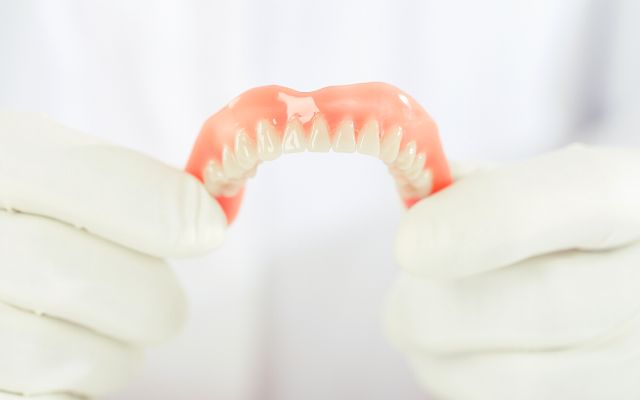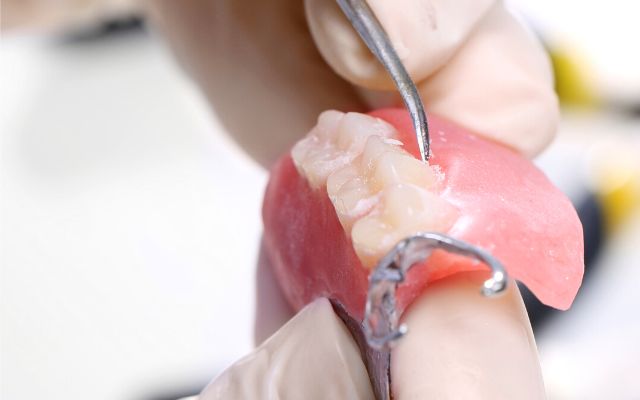Denture Relines, Repairs & Adjustments
Denture wear, changes in gum tissues and day-to-day use can affect how your dentures fit and function. Regular professional maintenance ensures your dentures remain comfortable, safe and effective. This guide explains why denture relines, repairs and adjustments matter, outlines available options and shows how Spring Orchid Dental Bassendean keeps your dentures in top condition.
Denture Relines And Repairs

Dentures rest on gum tissues that change shape over time. A denture reline renews the inner surface of your denture base so it conforms precisely to your gums. By contrast, denture repairs address damage such as cracks, breaks or lost teeth. Both services extend the life of your dentures and prevent discomfort, sore spots and chewing difficulties.
Types of Denture Maintenance
- Soft Relines
A pliable material bonds to your denture base to cushion tender gums for up to 12–18 months. Ideal after extractions or during healing. - Hard Relines
A durable acrylic layer replaces worn base material. Recommended when your gums have stabilised and a long-term fit is needed. - Rebasing
The denture’s acrylic base is completely replaced while retaining the original teeth. Best when the base is heavily worn or badly stained. - Emergency Repairs
Same-day fixes for fractured bases, chipped teeth or loose clasps. Quick lab work restores function and prevents worsening damage.

When Maintenance Is Necessary?
Watch for signs that your dentures need attention:
- Slipping or rocking during eating or talking
- New sore spots or gum irritation
- Visible cracks, chips or loose denture teeth
- Changes in facial profile or speech patterns
Prompt service prevents more serious issues and keeps your jaw and tissues healthy.
Step-by-Step Maintenance Process
Initial Assessment: Detailed examination of your dentures and oral tissues. Digital scans or impressions may be taken.
Recommended Treatment: We discuss the best option—soft or hard reline, rebase or repair—based on your oral health and goals.
Denture Lab Work: Precision relining and repair performed in our on-site laboratory, often within one appointment.
Final Fit and Check: We adjust and polish your dentures to ensure comfort, stability and optimal chewing efficiency.
FAQs
A denture reline should occur no more frequently than once every two years. However, if you experience discomfort or if your dentures do not fit properly or are loose, a reline will assist reduce your pain.
Can You Reline Dentures Yourself? Clearly, it is preferable to have your dentist reline your dentures. However, it is possible to reline your dentures at home if doing so would be too cumbersome or expensive. The advantages of performing a reline yourself are evident: it is less expensive and more convenient.
A denture reline should be performed every two years at most. However, if you’re experiencing any discomfort or if your dentures don’t fit properly and are loose, a reline will likely resolve the issue and restore your comfort with your new teeth.





